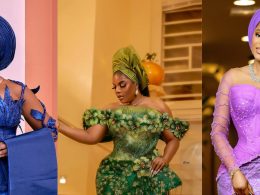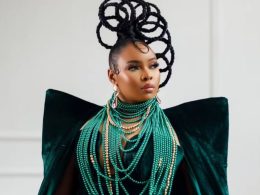Fashion and culture in Nigeria are deeply intertwined. From vibrant prints to handwoven textiles, traditional Nigerian attire powerfully expresses the country’s rich cultural heritage. With over 250 ethnic groups, each with its distinct styles, fabrics, and meanings, Nigerian fashion and culture represent a dynamic blend of tradition, identity, and modern influences.
This article explores the traditional attire of Nigeria’s major ethnic groups—Igbo, Hausa, Yoruba, Ijaw, Edo, Efik, Tiv, Igala, and Gbagyi—and shows how fashion and culture reflect cultural values, social status, and regional identity. From the regal Isiagu to the elegant Aso-Oke, Nigerian fashion and culture tell the story of a diverse and vibrant nation.
Igbo Traditional Attire: Symbols of Power and Prestige

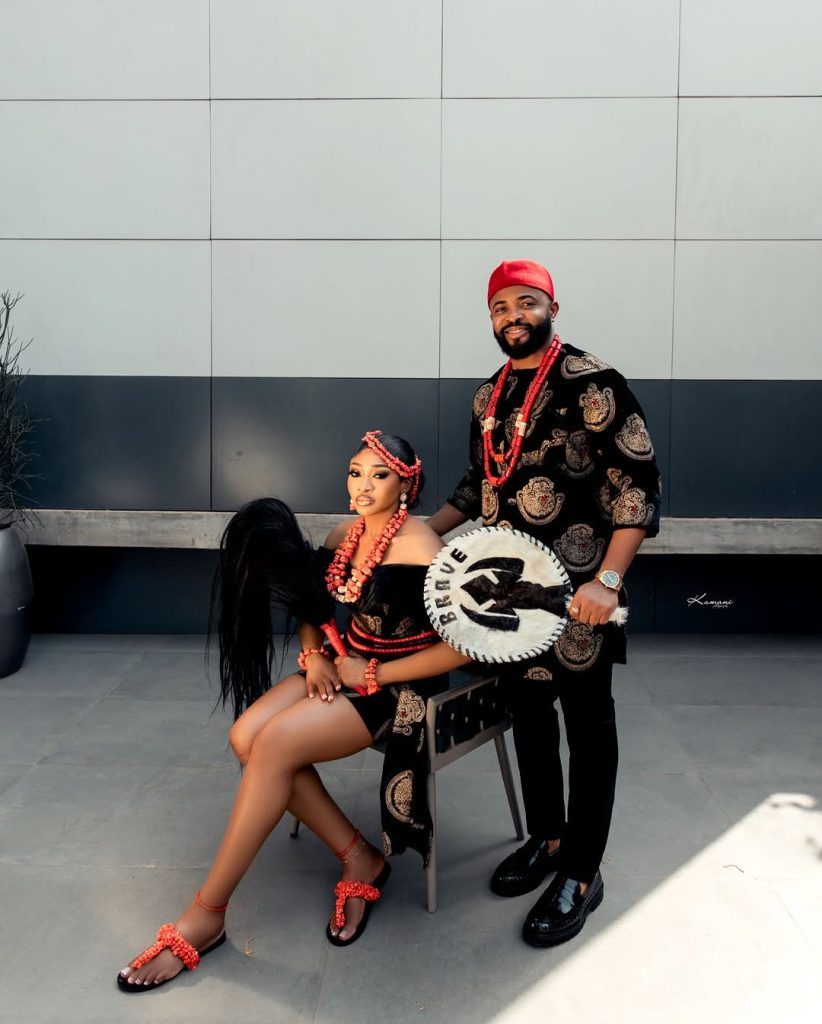
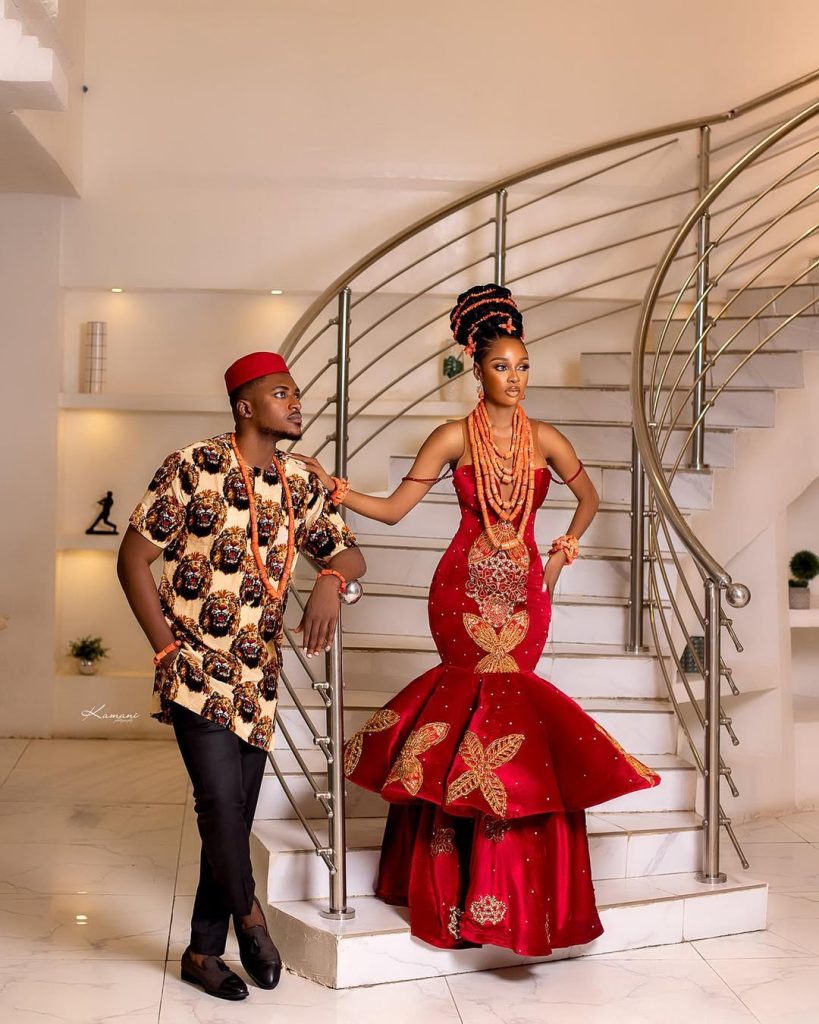
For Men:
Igbo men often wear the iconic Isiagu, a richly embroidered shirt with lion head motifs symbolizing authority. They pair this with a George wrapper tied at the waist. Titled men proudly wear the Okpu (red cap), which signifies chieftaincy. Coral beads and a walking stick complete their ensemble, further reflecting status.



For Women:
Igbo women commonly wear a blouse and wrapper made from lace, velvet, or Ankara fabric. The Ichafu (head tie) matches the wrapper in color and pattern. Coral beads, Akwete fabric, and traditional hats or veils are worn to enhance the look during special ceremonies like weddings and title-taking.


Hausa Traditional Attire: Elegance and Modesty


For Men:
Hausa men dress in the Babban Riga, a flowing gown with intricate embroidery around the neck. They wear this over a Kaftan and Wando trousers. The Hula (cap), often colorful and embroidered, completes the elegant outfit.

For Women:
Hausa women traditionally wear a loose-fitting Buba blouse paired with a Zani wrapper. The Gyale (headscarf) is draped in various styles, showcasing its grace. Additionally, many Muslim Hausa women wear the Hijab for added modesty, which blends Islamic values with traditional fashion.

Yoruba Traditional Attire: Regal and Vibrant


For Men:
Yoruba men wear the magnificent Agbada, a flowing robe layered over a Buba (top) and Sokoto (trousers). The Fila cap, styled in designs like Abeti Aja or Gobi, adds sophistication to the outfit.
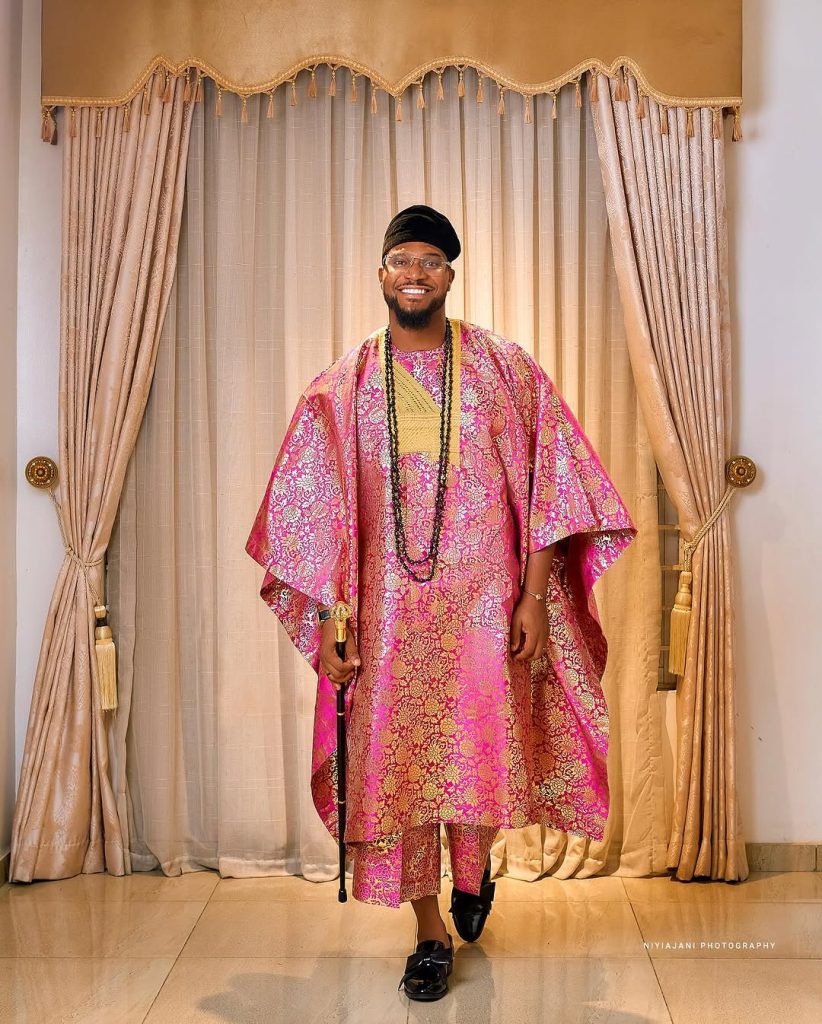
For Women:
Yoruba women wear the traditional Buba blouse and Iro wrapper. They accessorize with an Ipele (shoulder sash) and Gele (head tie). These elements reflect the vibrancy and richness of Yoruba fashion and culture, especially when made from materials like Aso-Oke.


Ijaw Traditional Attire: Rich and Distinctive

For Men:
Ijaw men often wear an Etibo shirt with a high collar, paired with trousers or a George wrapper. Accessories like hats, walking sticks, and coral beads are worn during ceremonies to denote respect and social standing.
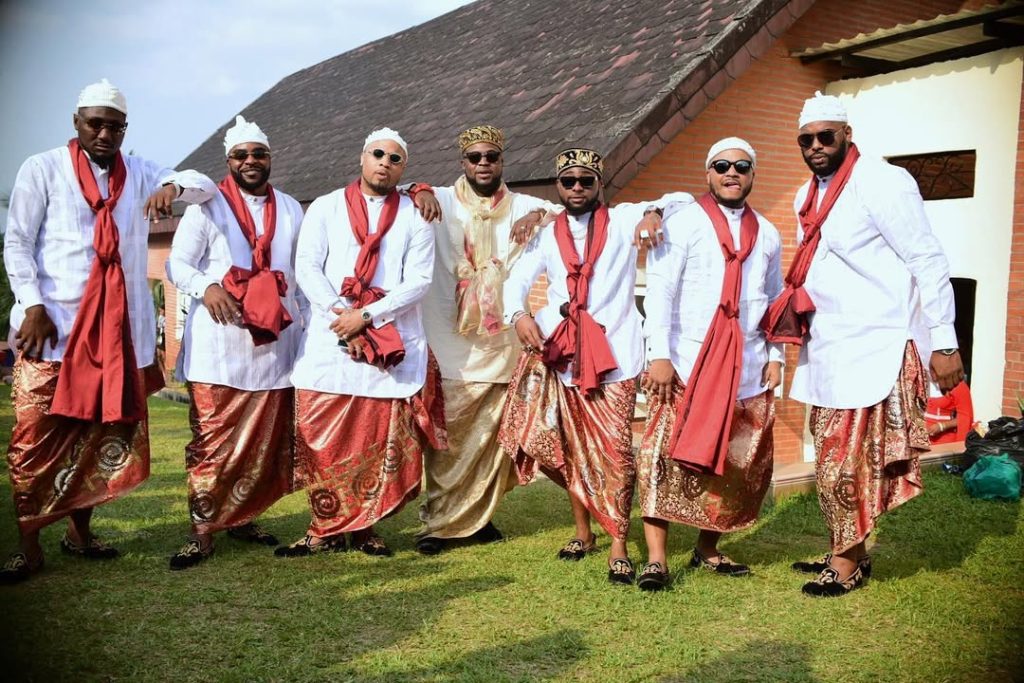
For Women:
Ijaw women wear an embroidered blouse paired with a double wrapper. Their headgear, which can range from scarves to veils, complements the outfit. Coral beads are key accessories, symbolizing beauty, status, and cultural pride.


Traditional Itsekiri Attire: A Symbol of Elegance and Cultural Identity

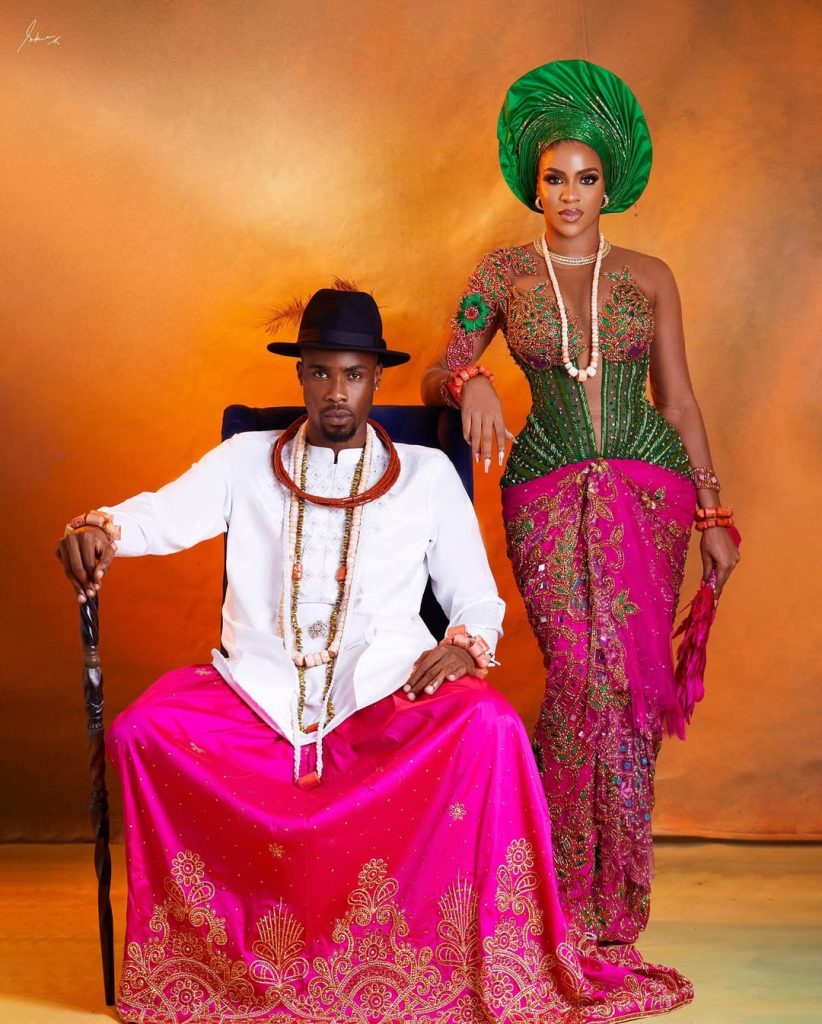
Itsekiri Men’s Traditional Clothing: Pride and Prestige in Style
Similarly, Itsekiri men embrace their cultural identity by donning the traditional Kemeje shirt, which comes in both long and short sleeves. They pair this with a George wrapper tied around the waist and top off the look with a distinctive hat adorned with a feather. Just like the women, the men accessorize with coral beads and other regal ornaments made of gold, silver, or gemstones, reflecting their rich cultural heritage.
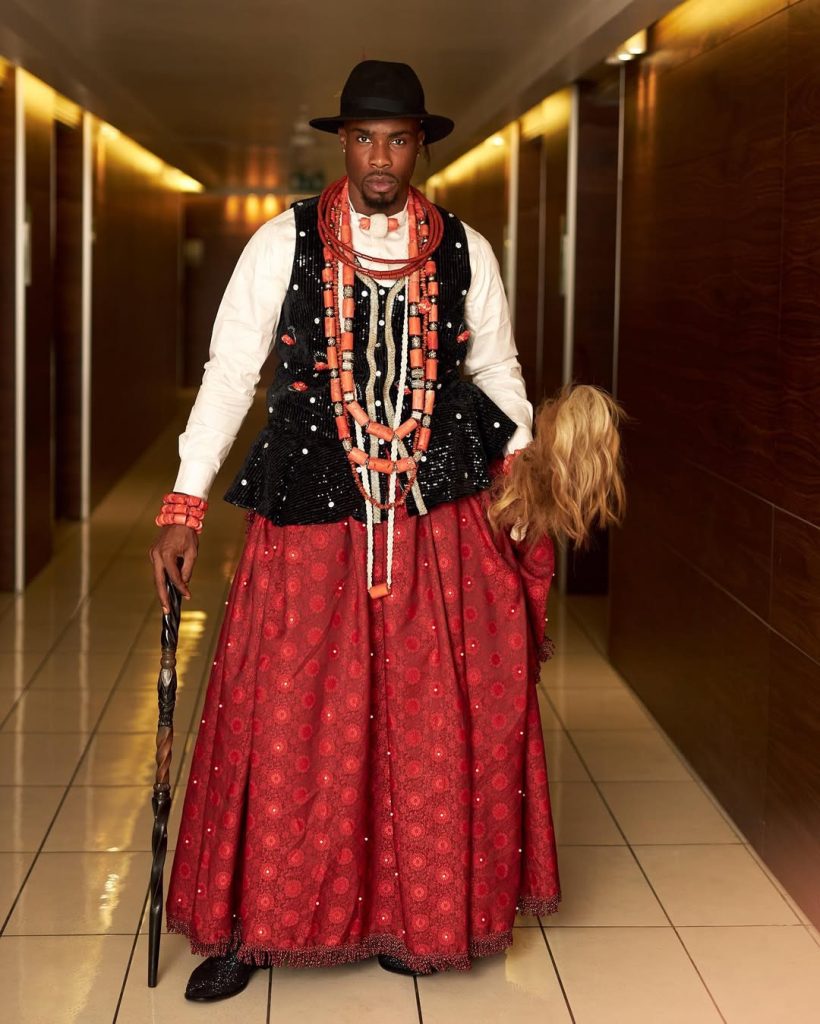
Itsekiri Women’s Traditional Clothing: Grace in Every Detail
Itsekiri women proudly showcase their heritage by wearing a stylish blouse paired with a richly embroidered George wrapper tied elegantly around the waist. To enhance their appearance, they often adorn colorful headgears known as Nes (scarves), along with layers of coral beads. They complete their attire with luxurious accessories made from beads, cowries, gold, silver, and precious stones—each element symbolizing prestige and tradition.
Tiv Traditional Attire: Monochrome Identity
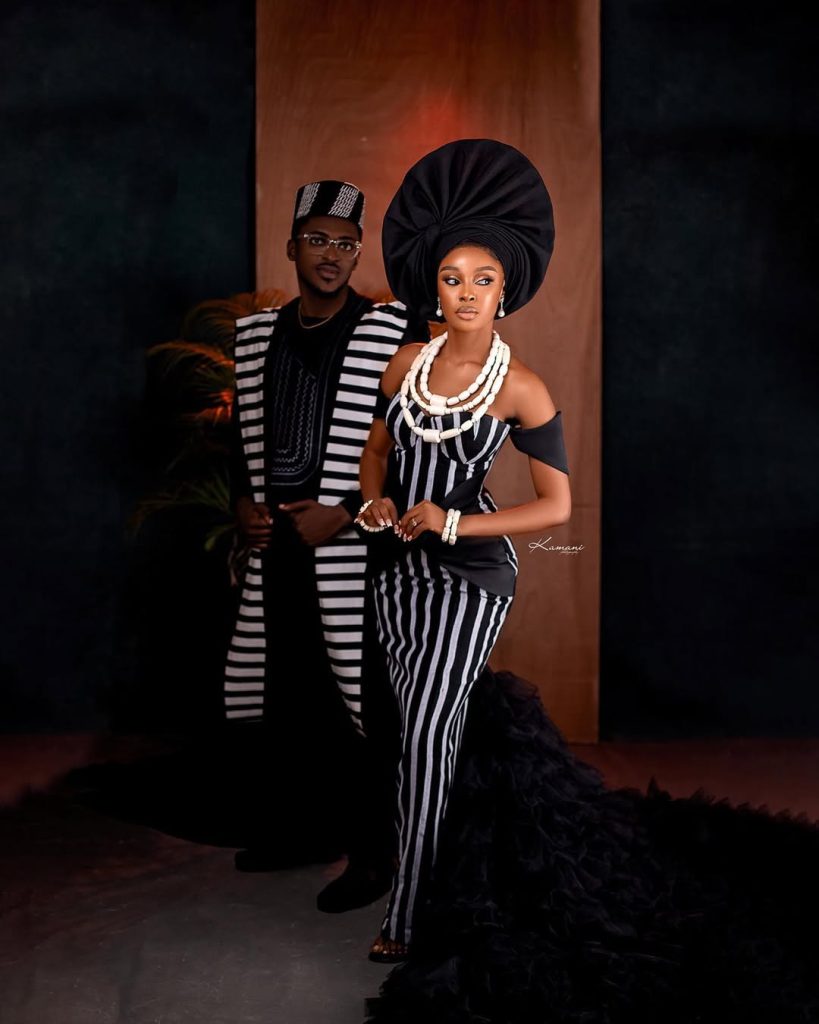
For Men:
Tiv men wear the Igbanger, a robe made from A’nger, a black-and-white striped fabric. This outfit is often reserved for formal occasions, embodying the Tiv people’s identity.
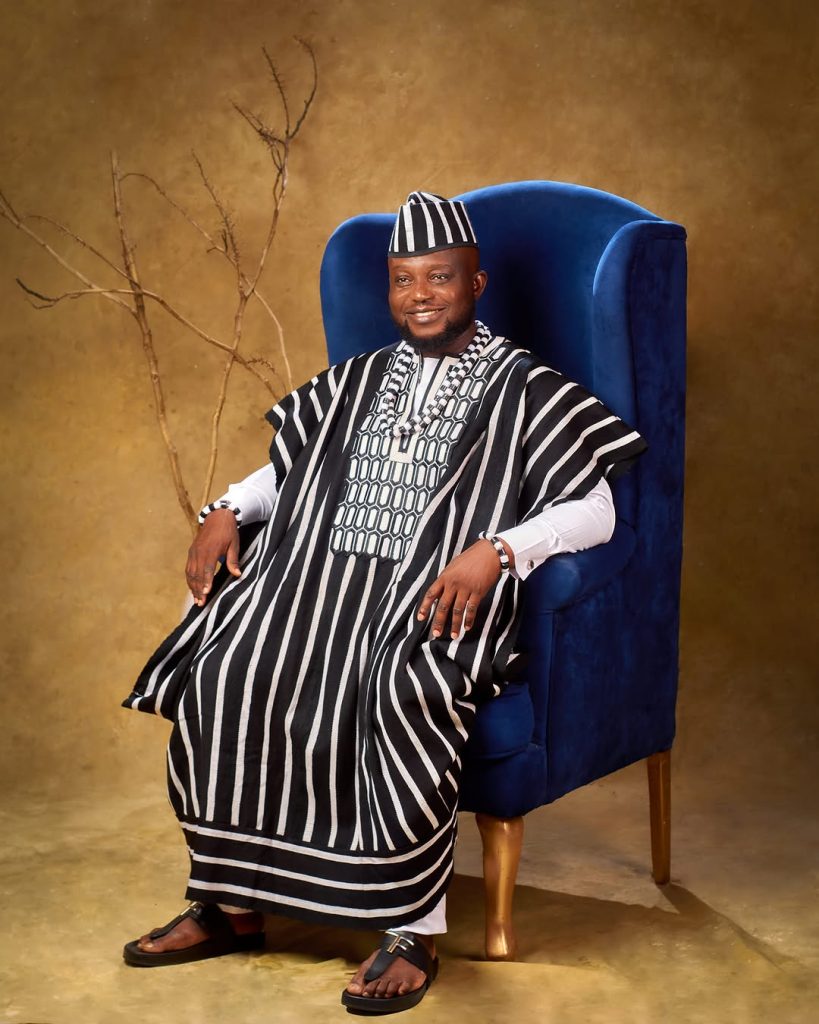
For Women:
Tiv women wear A’nger fabric as a wrapper, dress, or headscarf. The bold black-and-white design symbolizes unity and identity, making it a distinctive choice for festivals and communal events.
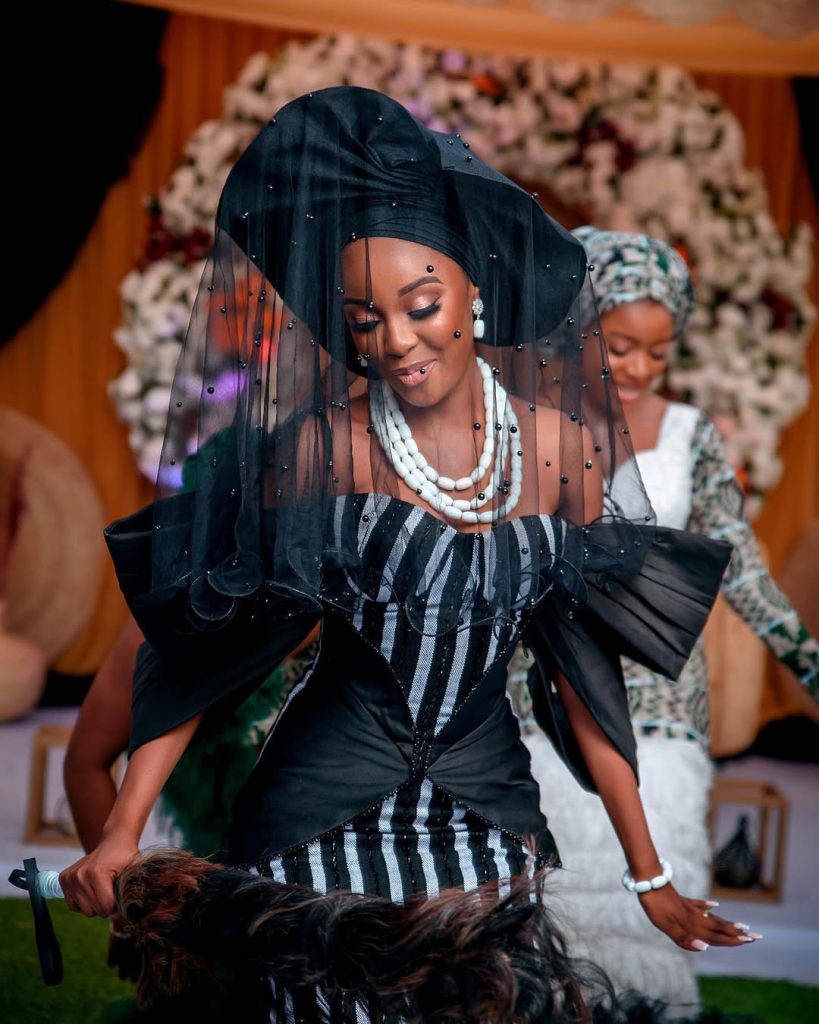

Edo Traditional Attire: Royalty and Grace
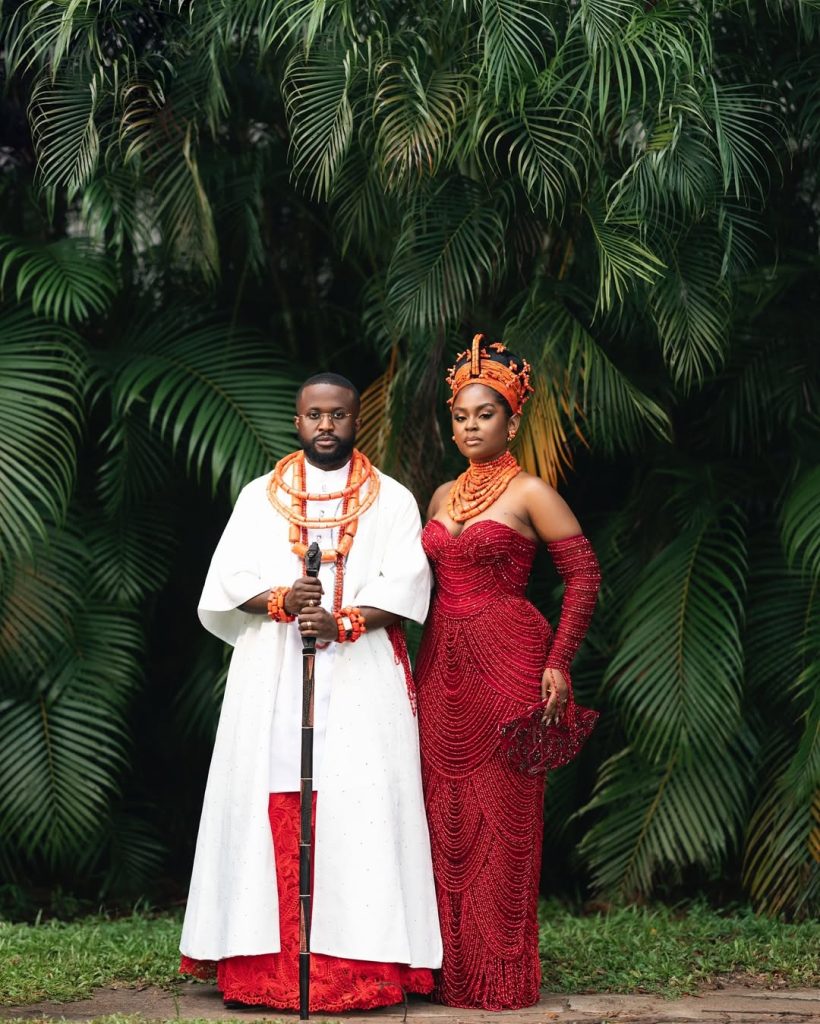
For Men:
Edo men wear an embroidered shirt paired with a wrapper tied around the waist. They accessorize with coral beads and sometimes a staff or scepter, signifying their regal status.
For Women:
Edo women are known for their elegance, wearing a blouse, wrapper, and Iborun (shoulder sash). Their hair is styled in the traditional Okuku fashion, often adorned with coral beads. This attire is particularly worn during weddings and major ceremonies, reinforcing their royal heritage.
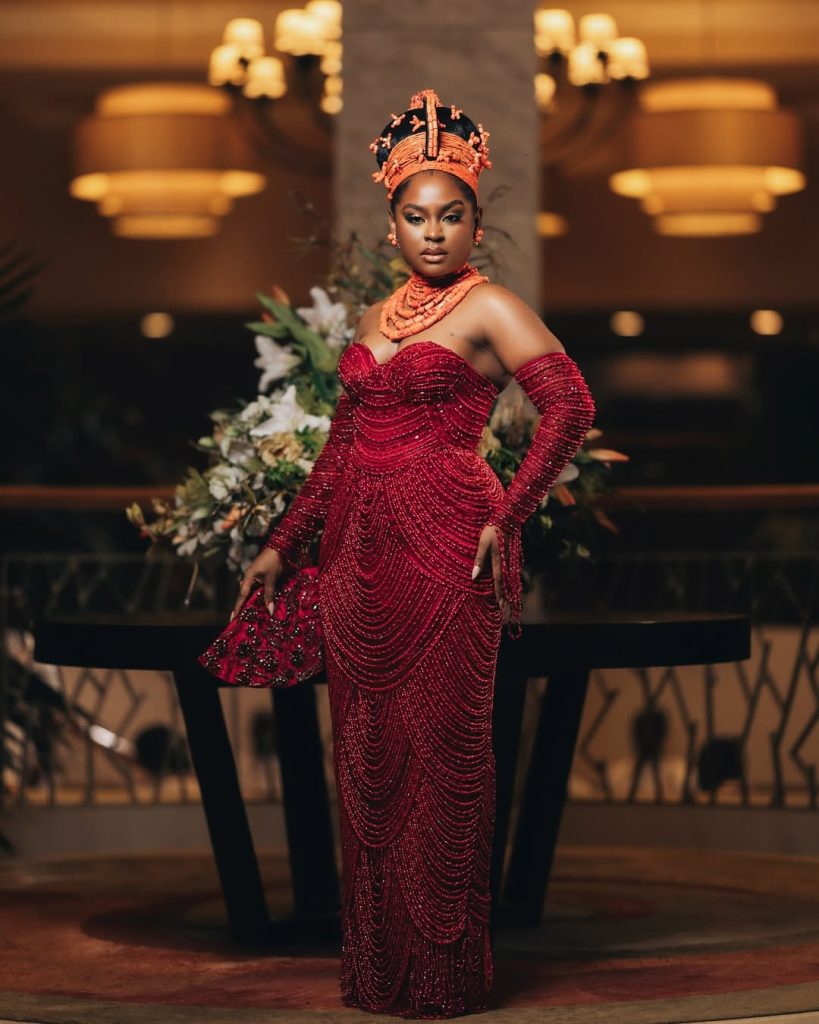
Efik Traditional Attire: Graceful and Symbolic

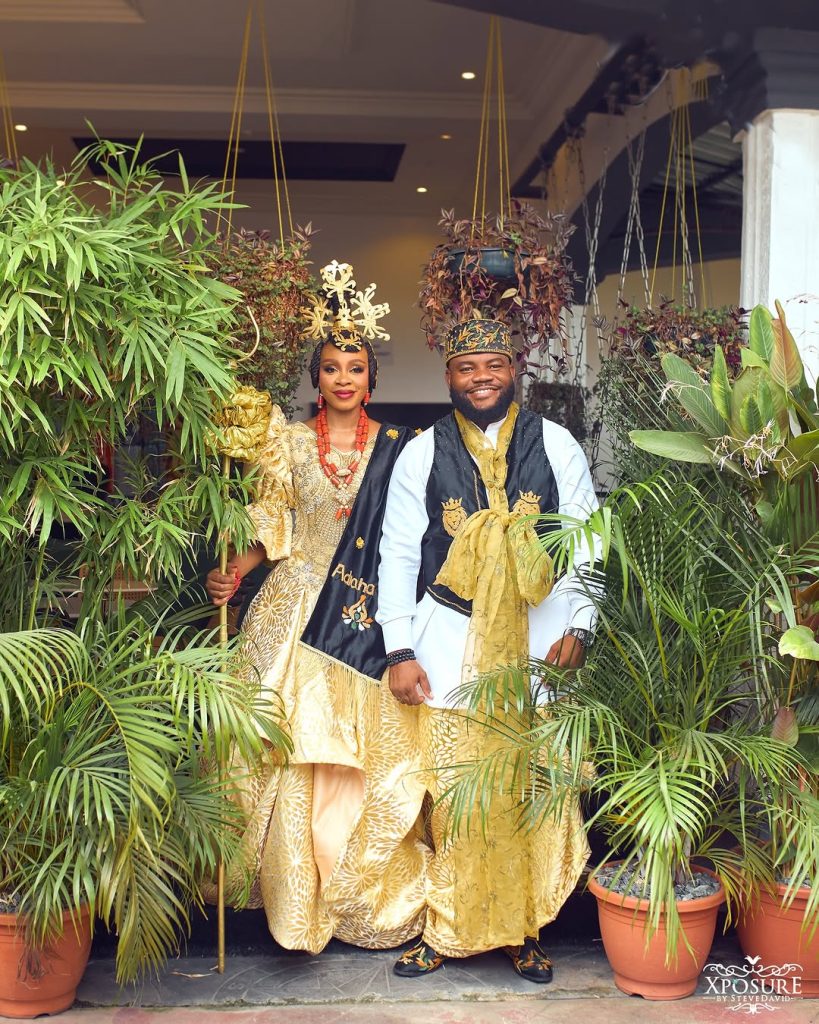
For Men:
Efik men dress in a Usobo wrapper, paired with a shirt, cap, and walking stick. The Okpomkpom scarf adds extra flair during cultural dances and ceremonies.
For Women:
Efik women have two main outfits: the Ofod Ukod Anwang, which consists of a waist skirt and bust-covering top, and the Onyonyo, a flowing gown worn at weddings. Accessories such as the Etenge wig, brass combs, and beaded headpieces highlight the beauty and grace of Efik fashion and culture.
Igala Traditional Attire: Achi Igala Style

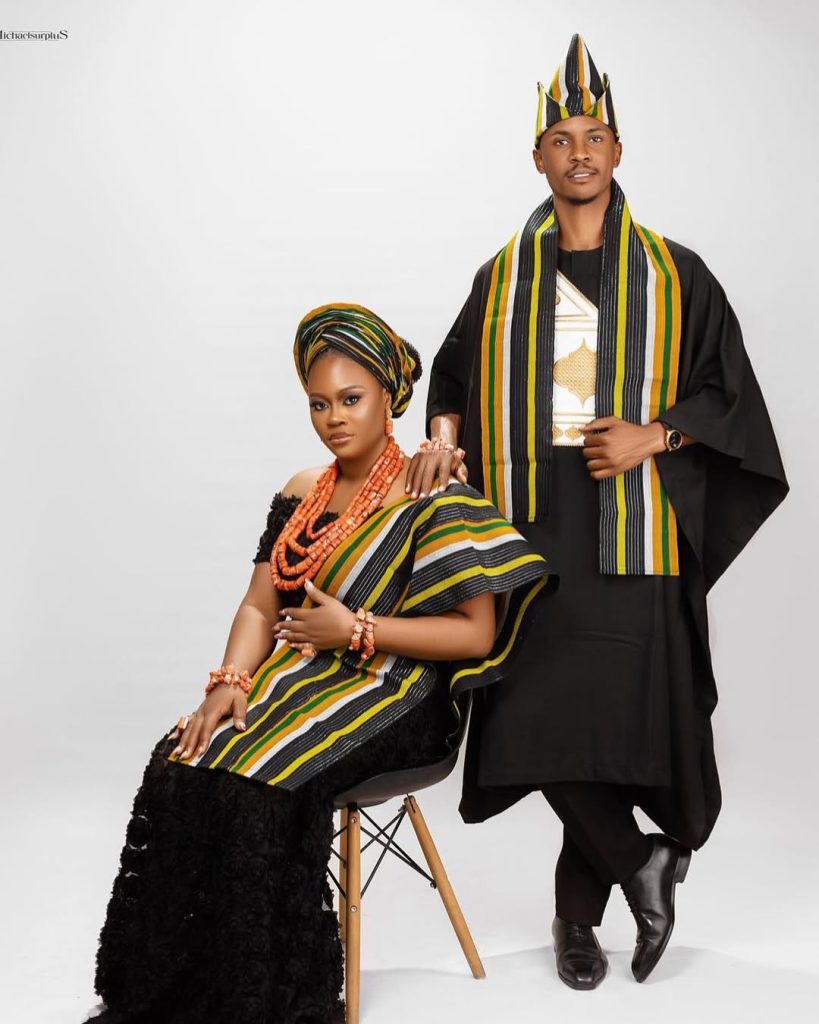
For Men:
Igala men proudly wear the Achi Igala fabric, often as a wrapper, dress, or cap, which reflects cultural pride. These garments signify Igala identity and heritage.
For Women:
Igala women wear Achi Igala fabric in various forms—whether as a wrap, dress, or headscarf. This flexible style allows them to express their cultural pride and flexibility in fashion choices.
Gbagyi Traditional Attire: Heritage in Fabric
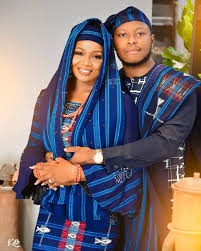
For Men:
Gbagyi men wear dark blue fabric, a symbol of wisdom and tradition. The black fabric adorned with inscriptions like “Mizhin Gbagyi Nu” (We are Gbagyi people) is also popular, showcasing their pride in their heritage.
For Women:
Gbagyi women wear dark blue fabric and black fabric, decorated with cultural motifs, during festivals and ceremonies. These fabrics symbolize their heritage and the continuity of their traditions.
Cultural Identity and Fashion Design in Nigeria
Cultural identity shapes fashion design by influencing fabric choice, patterns, colors, and symbolism. In Nigeria, fabrics like Ankara, Adire, Akwete, and Aso-Oke are not just materials but vessels of cultural expression.
Design Influences Include:
- Symbolism and Motifs: Patterns reflect meanings and status (e.g., lion motifs, tribal marks).
- Modern Fusion: Designers merge traditional textiles with contemporary silhouettes.
- Regional Crafts: Handwoven techniques, dyeing methods, and embroidery are rooted in tradition.
Examples:
- Kente Cloth (Ghana): Symbolic, each pattern has meaning.
- Dashiki: West African tunic with cultural significance.
- Maasai Shuka (Kenya): Bold, symbolic of tribal identity.
Conclusion: From the regal agbada to the striped A’nger, traditional attire across Nigeria tells stories of origin, pride, and belonging. As Nigerian designers continue to innovate while preserving heritage, fashion remains a vibrant medium for celebrating identity and unity in diversity.
Interested in African fashion? Explore more about cultural symbolism in textiles and how African designers are reshaping global fashion.
For related articles on the Gbagyi culture, click here










